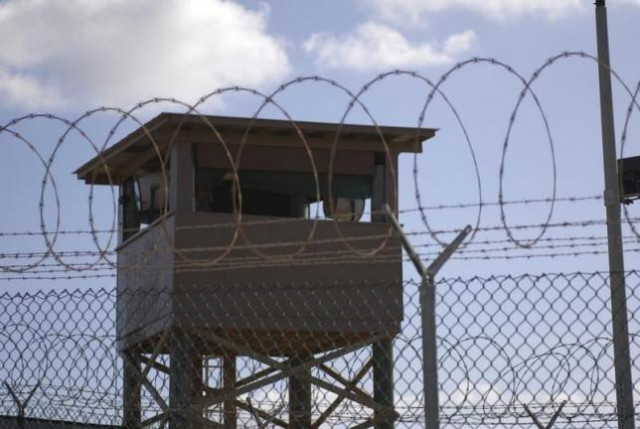US sends Yemeni Guantanamo inmate to Italy, 78 detainees left
The Yemeni man was arrested by Pakistani police and transferred to US custody in December, 2001

A soldier stands guard in a tower overlooking Camp Delta at Guantanamo Bay naval base in a December 31, 2009 file photo provided by the US Navy. PHOTO: REUTERS/US NAVY
Fayiz Ahmad Yahia Suleiman was approved for transfer nearly six years ago by six US agencies - the Departments of Defense, State, Justice and Homeland Security, the Office of the Director of National Intelligence, and the Joint Chiefs of Staff.
US Senate votes to allow 9/11 victims to sue Saudi Arabia
"The United States is very grateful to the Government of Italy for its continued assistance in closing the detention facility at Guantanamo Bay," said Lee Wolosky, the US special envoy for Guantanamo's closure, describing the effort to shut the prison as a "shared goal."
A Pentagon spokesperson declined comment on whether the man would be subject to detention in Italy and referred that question to the Italian government, which said it was taking him on "humanitarian grounds" but provided no further details.
The Yemeni man was arrested by Pakistani police and transferred to US custody in December, 2001, meaning he had been in US detention for more than 14 years, according to US military documents posted online by the WikiLeaks website.
US President Barack Obama, who had hoped to close the prison during his first year in office in 2009, rolled out his plan in February aimed at shutting the facility. But he faces opposition from many Republican lawmakers as well as some fellow Democrats.
Obama bans solitary confinement for juveniles
Most of the 78 prisoners who remain at Guantanamo have been held without charge or trial for more than a decade, drawing international condemnation.
The Guantanamo prisoners were rounded up overseas when the United States became embroiled in wars in Afghanistan and Iraq following the September 11, 2001, attacks on New York and Washington.
The facility, opened by Obama's Republican predecessor, George W. Bush, came to symbolize aggressive detention practices that opened the United States to accusations of torture.
Obama's plan for shuttering the facility calls for bringing the several dozen remaining prisoners to maximum-security prisons in the United States. US law bars such transfers to the mainland.
The United States has struggled to persuade other nations to accept the prisoners because of concerns they could launch attacks and by America's unwillingness to accept them on the US mainland.



















COMMENTS
Comments are moderated and generally will be posted if they are on-topic and not abusive.
For more information, please see our Comments FAQ